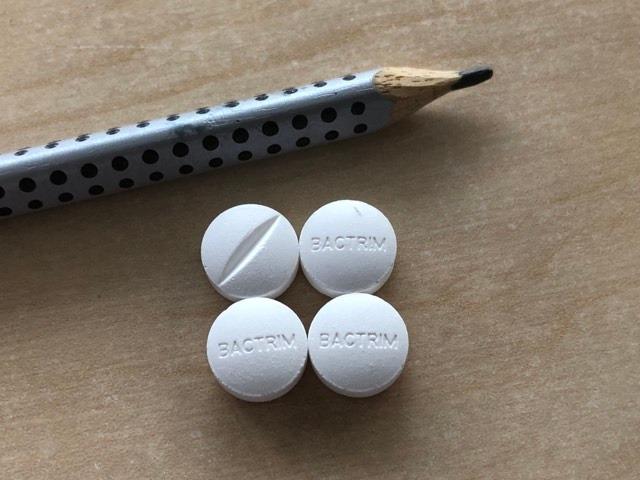A new study of adolescents and young adults has found a commonly used antibiotic for skin infections, urinary tract infections, and acne is associated with an increased risk of respiratory failure.
The study, conducted in Ontario, found that the risk of a hospital visit with acute respiratory failure was nearly three times higher in healthy 10- to 25-year-olds who received trimethoprim-sulfamethoxazole (TMP-SMX) than those who received either amoxicillin or cephalosporin antibiotics, though the overall risk was low. The findings were published yesterday by a team of Canadian researchers in JAMA Network Open.
The study adds to evidence from 19 case reports that have linked use of TMP-SMX (marketed under the brand names Bactrim and Septra) to acute respiratory failure in previously healthy adolescents and young adults. Four patients required prolonged extracorporeal membrane oxygenation (ECMO) support, and two died, including a 17-year-old who spent more than a year in the hospital and was on ECMO for 189 days following a severe reaction to Bactrim.
The case reports led the Food and Drug Administration (FDA) to place a warning label in 2021 on oral and injection formulations of Bactrim and Septra that advises medical providers to watch for reports of cough, shortness of breath, or rapid, shallow breathing. This is the first population-based study to confirm the warning.
Findings support FDA warning
For the study, researchers from Western University and the Institute for Clinical Evaluative Sciences used linked administrative healthcare databases in Ontario to compare outcomes in adolescents and young adults aged 10 to 25 years who were new users of oral TMP-SMX, amoxicillin, or cephalosporins for three days or more from April 2002 to August 2023.
The researchers chose amoxicillin and cephalosporins as the active comparator drugs based on their similarity in bacterial coverage and indications.
The primary outcome was the 30-day risk of a hospital visit with acute respiratory failure.
The researchers first compared outcomes in 575,218 patients (median age, 19 years; 74.3% female) who received TMP-SMX (44,801) versus amoxicillin (530,417) for a median of 7 days. The primary outcome occurred in 15 patients (0.03%) in the TMP-SMX group and 49 (0.01%) in the amoxicillin group (weighted risk ratio [RR], 2.79; weighted risk difference [RD], 0.02%).
In the comparison of 248,236 adolescents and young adults (median age 19 years; 72.3% female) who received TMP-SMX (51,197) with those who received cephalosporins (197,039), the primary outcome occurred in 17 patients (0.03%) in the TMP-SMX arm and three (0.01%) in the cephalosporin arm (weighted RR, 2.85; weighted RD, 0.02%).
The number needed to harm for acute respiratory failure was 4,976 for the TMP-SMX versus amoxicillin cohort and 4,046 for the TMP-SMX versus cephalosporins cohort.
The results were consistent in multiple sensitivity analyses and when the researchers used a different study design.
“This population-based study of over 750 000 adolescents and young adults aged 10 to younger than 25 years in each cohort supported and reinforced the 2019 [sic] FDA safety warning and label change regarding a potential association between TMP-SMX and acute respiratory failure in healthy adolescents and young adults,” the study authors wrote.
Replication needed
The authors note that while most patients prescribed TMP-SMX don’t develop acute respiratory failure, a small subset may be genetically predisposed, with variants in immune genes and polymorphisms in drug-metabolizing enzymes that could result in severe reactions to the drug. But there may be other explanations.
“Alternatively, acute respiratory failure or acute respiratory distress syndrome may result from the underlying infection itself, rather than the drug,” they wrote.
They caution that causality can’t be inferred from the observational study, and that replication of the findings is required before definitive conclusions can be reached.






















